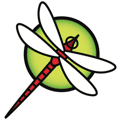DragonFly BSD 3.4 lands
 The latest version of DragonFly, the BSD-derived Unix designed for clustering, has been released. Along with improvements in how DragonFly BSD 3.4 performs under extreme load, the highlight of the release is a new experimental packaging system, DPorts, which uses the FreeBSD ports system to build software for DragonFly. A new USB stack and default compiler are among the other notable features.
The latest version of DragonFly, the BSD-derived Unix designed for clustering, has been released. Along with improvements in how DragonFly BSD 3.4 performs under extreme load, the highlight of the release is a new experimental packaging system, DPorts, which uses the FreeBSD ports system to build software for DragonFly. A new USB stack and default compiler are among the other notable features.
DPorts uses pkgng to manage those ports. The new packaging system does not mix with the old, still default, pkgsrc packaging and users will need to completely switch to DPorts to make use of it. The creation of the new ported software used poudriere, which bulk builds ports, and in the process exposed stability issues on large multicore systems, which have been fixed in DragonFly along with improvements to tmpfs performance and efficiency in situations with heavy CPU and disk usage.
The developers have now switched to GCC 4.7 as the default compiler. 4.7 was introduced as an alternative to the default GCC 4.4 in DragonFly BSD 3.2, and with 3.4 the compilers' roles have switched. The change makes a compiler with OpenMP parallel programming support and stack smashing protection the default on the platform, as well as bringing improved support for C++ and Objective-C and adding Link-Time Optimisation. The new USB stack, USB4BSD, supports more devices and xhci (USB 3.0), but it isn't available by default and has to be built in when compiling the system.
Other changes include support for AVX instructions on 64-bit processors, many changes to ACPI and interrupt handling in the kernel, fixes for keyboard screen switch panics, more driver support and AHCI bug fixes. The HAMMER2 filesystem is, according to the release notes, not operational yet – "not even for devs" – though development continues. The actual version of the release is 3.4.1. The release notes are included in the announcement and two ISO images are available from download mirrors: a burnable ISO image and a bootable USB stick image.
(djwm)
![Kernel Log: Coming in 3.10 (Part 3) [--] Infrastructure](/imgs/43/1/0/4/2/6/7/2/comingin310_4_kicker-4977194bfb0de0d7.png)

![Kernel Log: Coming in 3.10 (Part 3) [--] Infrastructure](/imgs/43/1/0/4/2/3/2/3/comingin310_3_kicker-151cd7b9e9660f05.png)
















